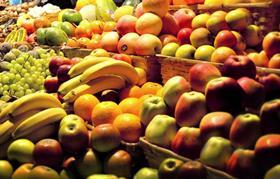
Specialist stores including greengrocers have attracted younger shoppers during lockdown according to a new report by grocery research charity IGD.
During the coronavirus pandemic specialist food stores, such as butchers, fishmongers and greengrocers, have been most popular with younger shoppers (aged 18-24), as older age groups (65+) relied more on online services, according to acommunity research projectby IGD.
Referring to insights from 30 British households that are validated by a survey of 2,000 shoppers, the new research stream reveals new habits emerging from this period that could be here to stay.
‘Life Under Lockdown’, the first report in theShoppers of Our Timeseries,suggests a shift in how different age groups have used different store types over recent months.
Shoppers over 55, who were the most frequent users of specialist stores before lockdown, have decreased their usage in the last few months from roughly a third (32 per cent) to a quarter (25 per cent), likely driven by social distancing concerns.
In contrast, younger shoppers have increased their use of specialist stores. A quarter (23 per cent) of 18-24-year olds claim to have visited stores such as butchers, fishmongers and greengrocers in 2020, up from 20 per cent in 2019.
With 78 per cent of all age groups visiting specialist stores more frequently saying they will continue to do so in future, this shift could indicate a longer-term change.
Dan Gillet, shopper insight manager at IGD, said: “Shopper behaviour has changed to an extent rarely ever seen. Some of these changes will present a unique opportunity for retailers across the board to retain shoppers they traditionally wouldn’t have – such as specialist stores, to keep younger shoppers visiting, and general or online retailers to retain the older shopper base they have attracted during this time.
“Our Shoppers of Our Time series has already shown us some great insight which we are sharing with industry, and over the next two years we will also be delving into an array of subjects such as changes to shopping basics, the return of out-of-home consumption, redefining social consciousness and lifestyle changes that Covid-19 has brought about.
“Understanding the changes to shopping habits and behaviours during lockdown will give an idea of what the future might look like for those businesses trying to lock in their long-term plans.”
All channels, except for online, have seen an overall drop in usage as shoppers restricted their shopping trips in line with social distancing rules. More than one in 10 shoppers (13 per cent) claim to have shopped online for the first time during lockdown – older shoppers in particular have driven usage of the channel, with 42 per cent of over-65s opting for online.
The recent reliance on online channels has been significant, with 55 per cent of those shopping more online saying that without this service, they could not have got enough food and groceries during lockdown. Nearly two thirds of over-65s said the same.
Discount stores, however, have seen a larger drop in usage than other formats, with 50 per cent of shoppers claiming to have used a food discounter in May compared to 65 per cent in February.
According to those surveyed, there are two main causes of this: the inability to get everything needed in one shop, and difficulty in social distancing due to discounter store formats.
Frequency of shopping has also experienced a drastic change. Prior to lockdown, nearly three-quarters (73 per cent) of the 30 households surveyed shopped more than once a week, while during lockdown this reduced to just 42 per cent.
The reduction in frequency was an active decision, with shoppers trying to follow social distancing rules – and trying to protect themselves and their families.



